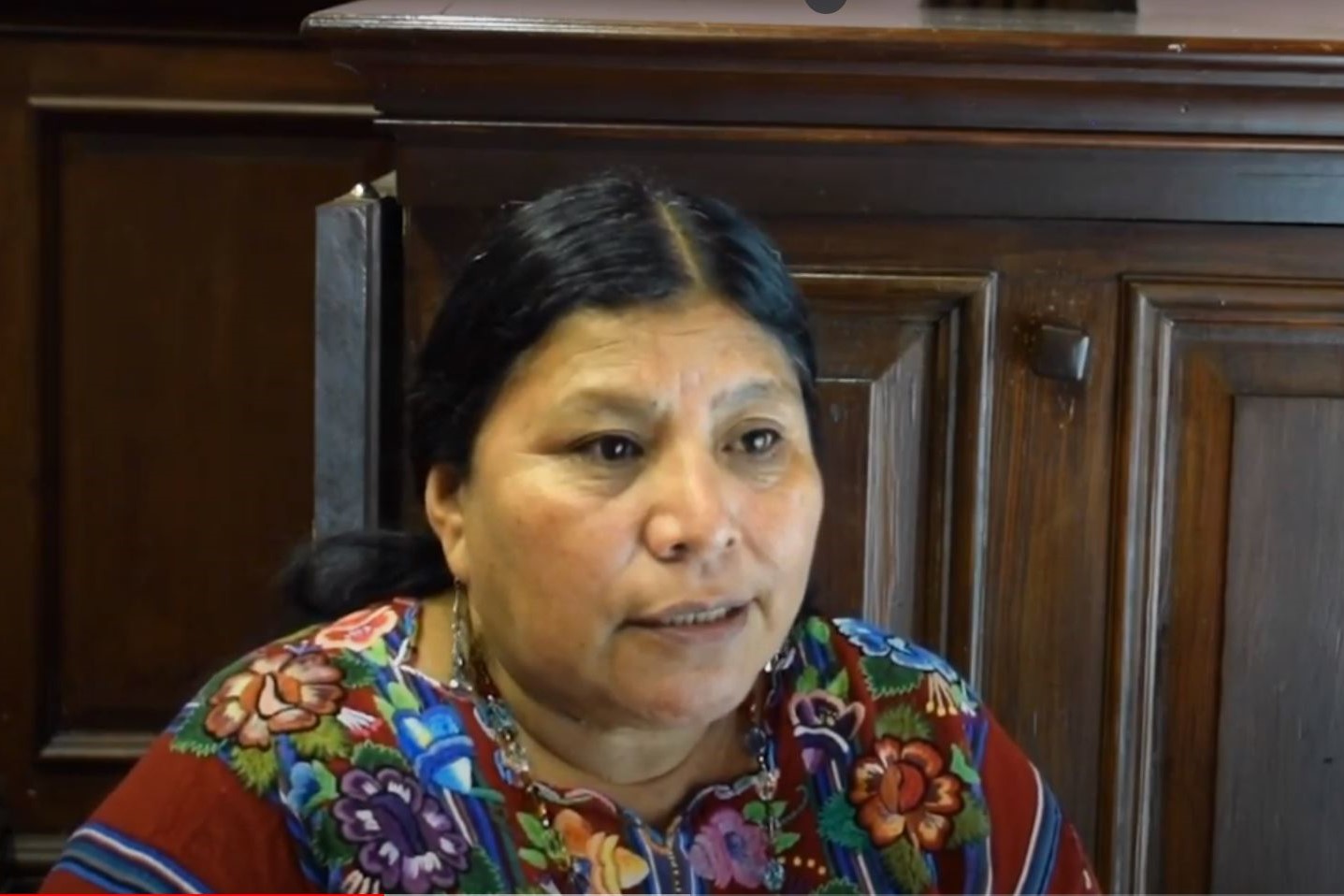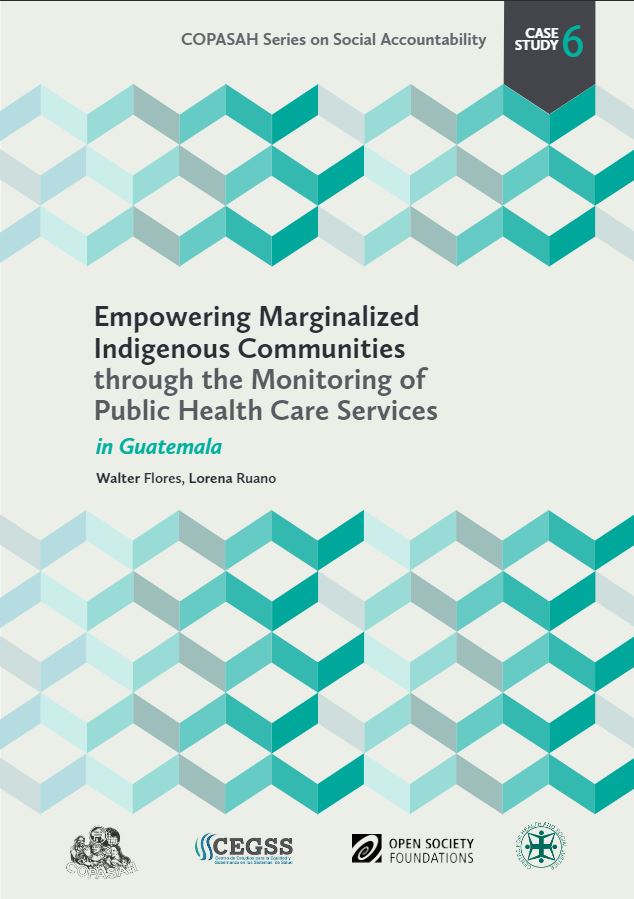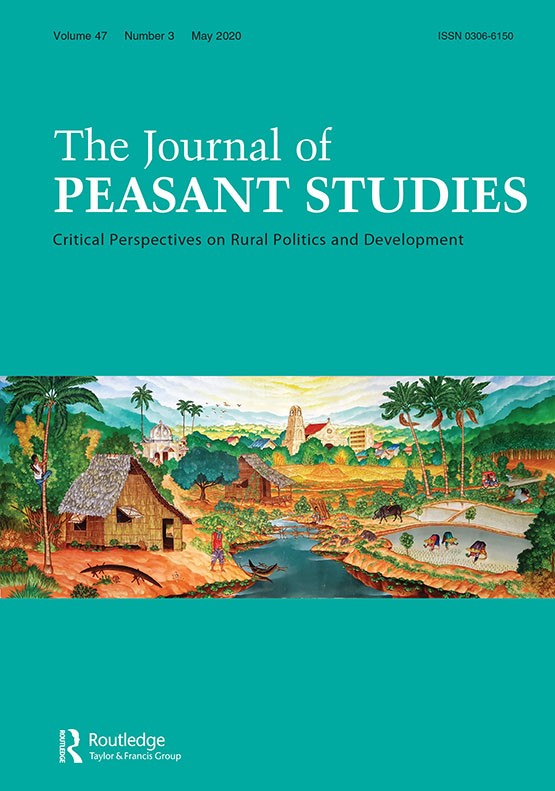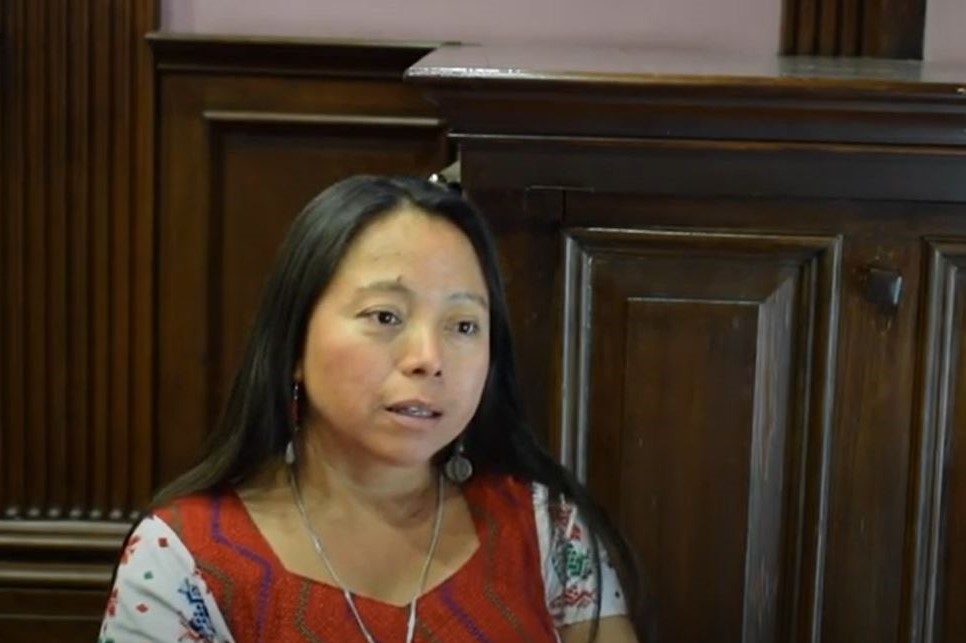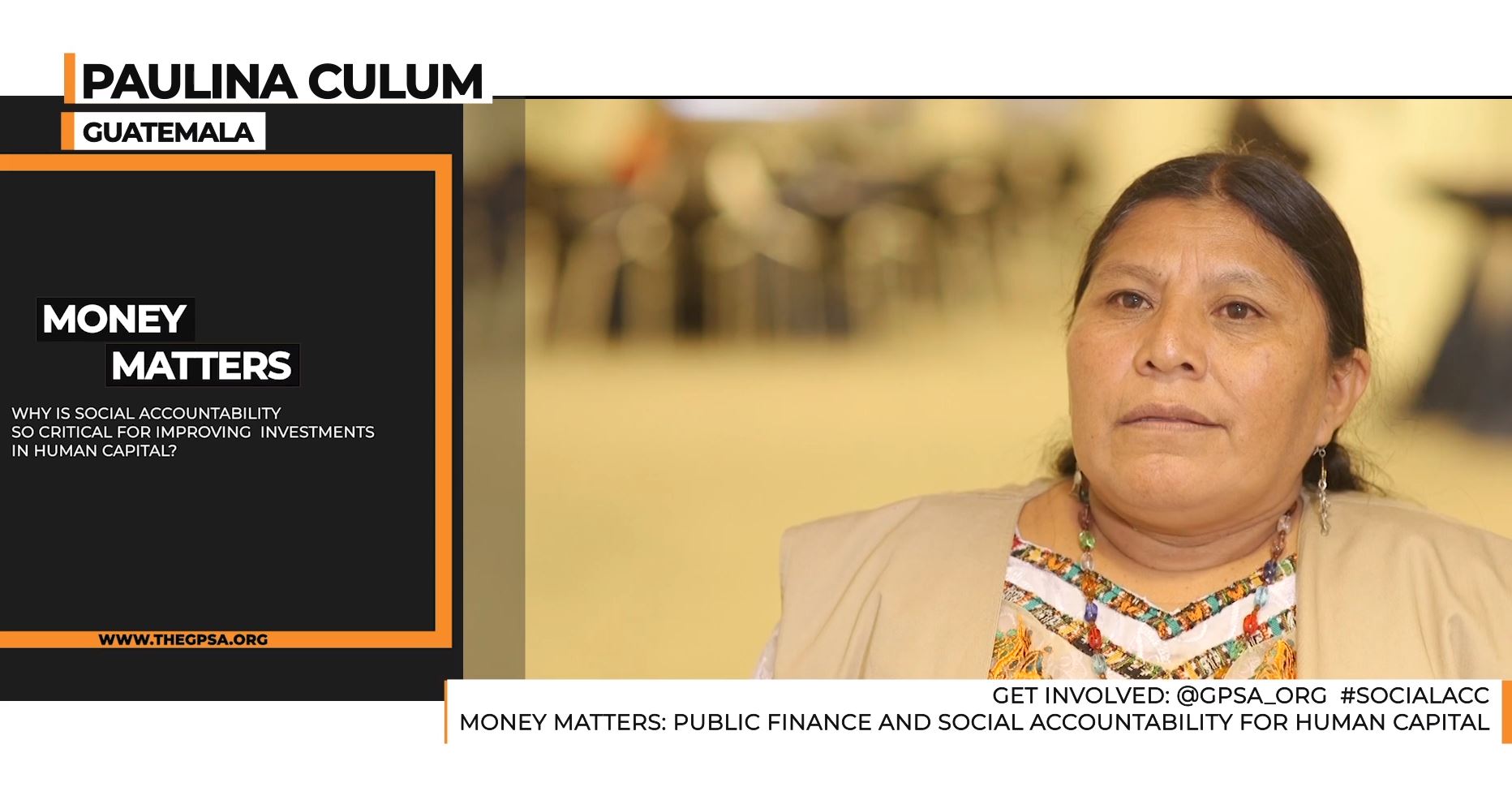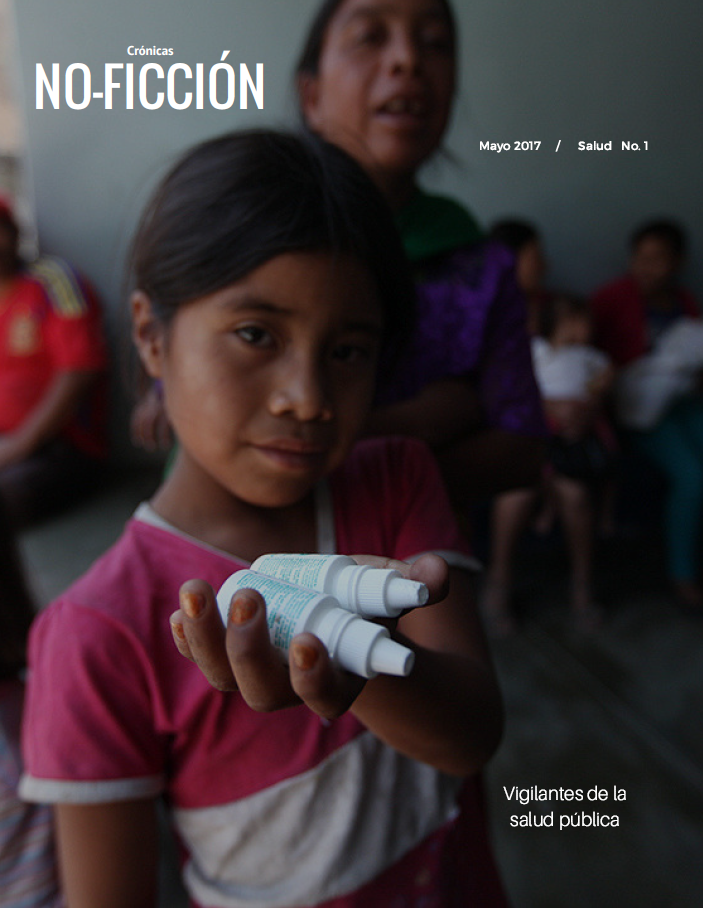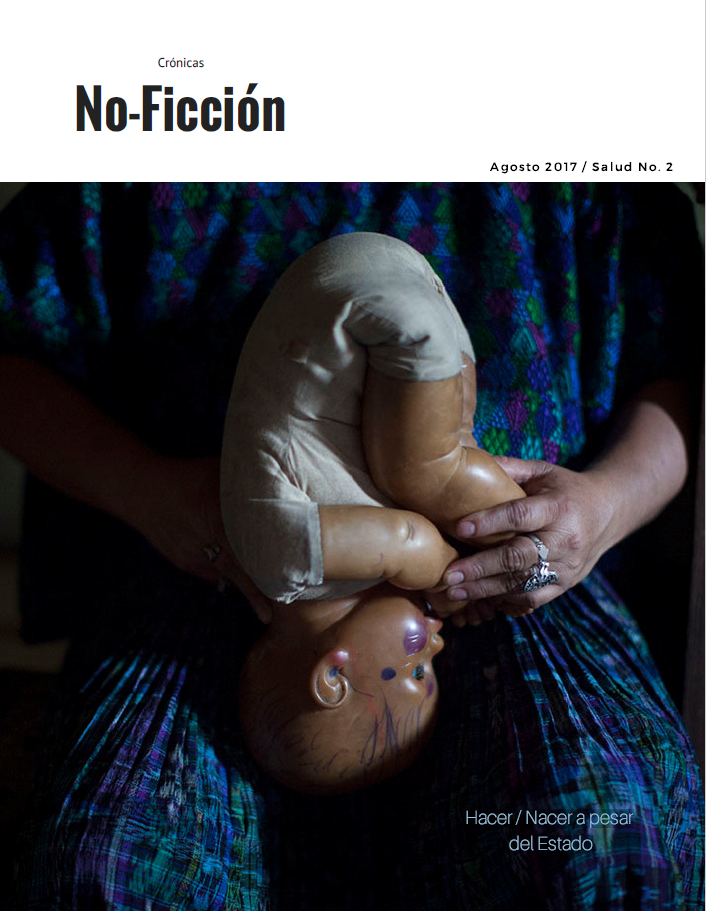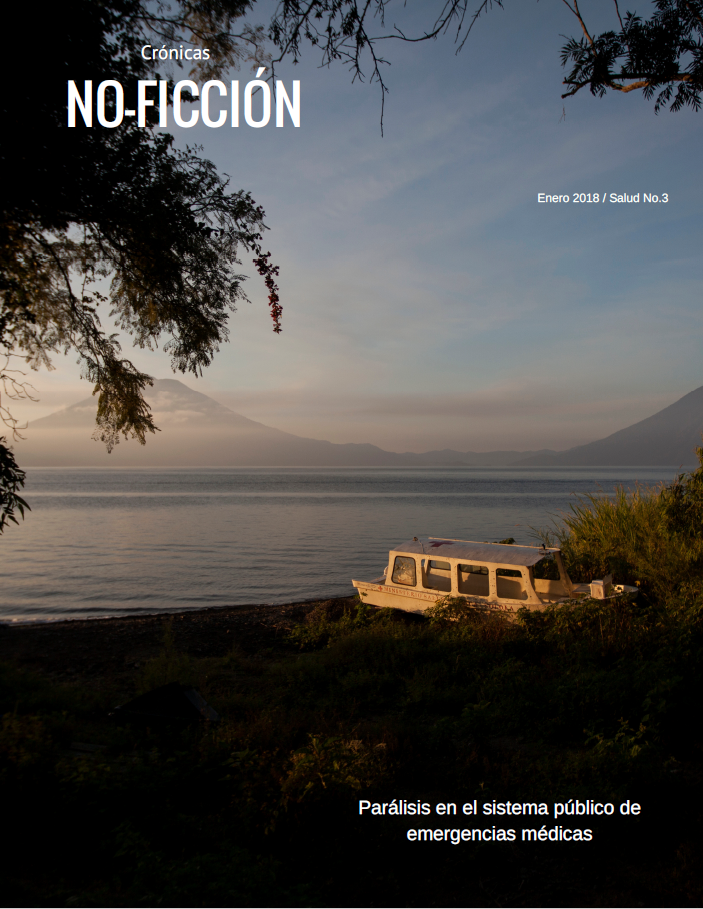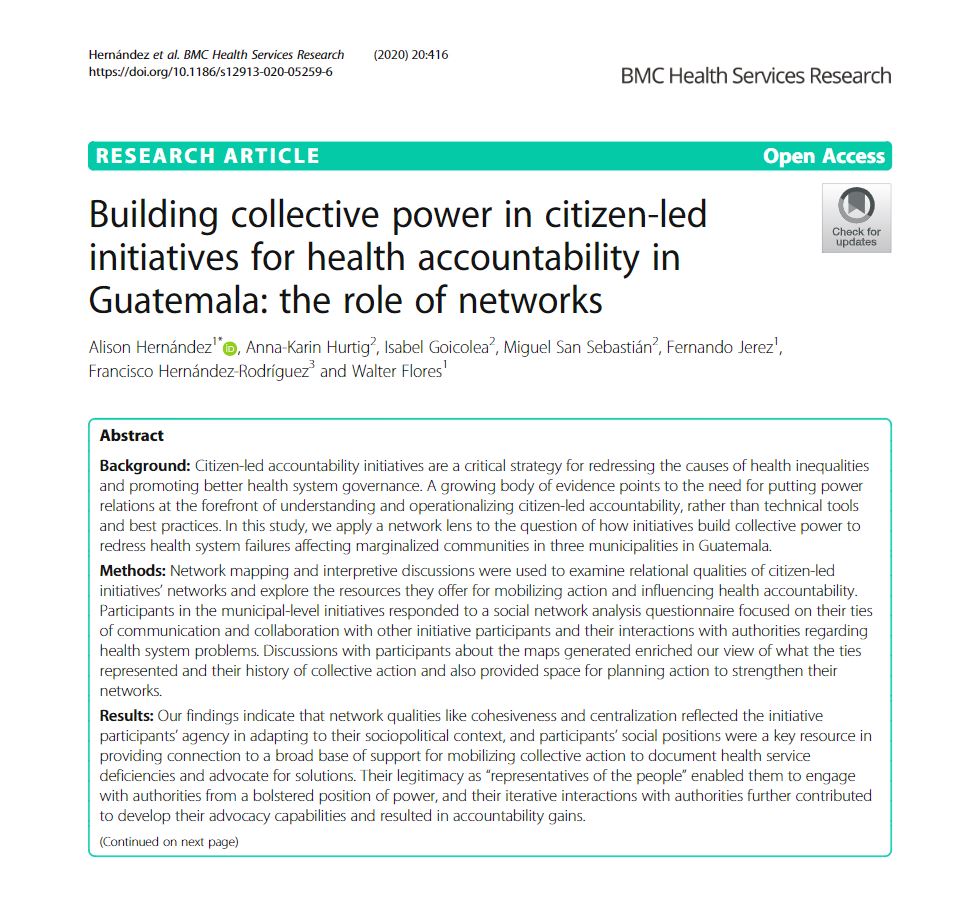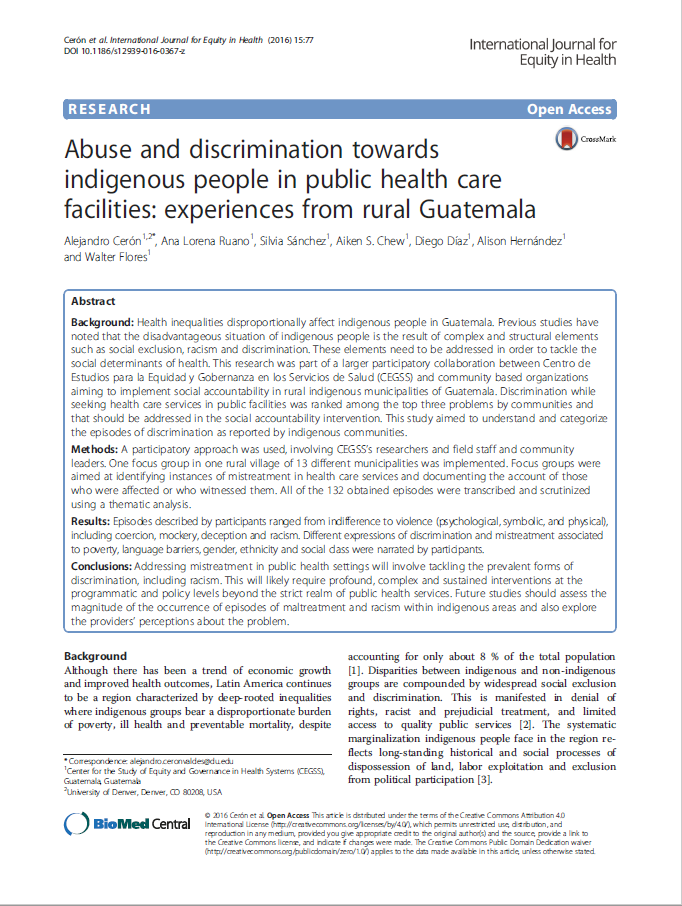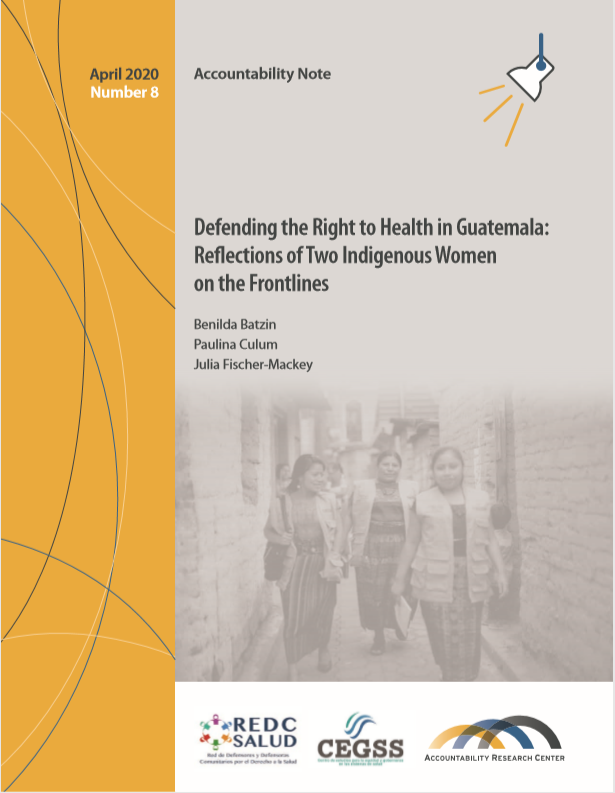
Defending the Right to Health in Guatemala: Reflections of Two Indigenous Women on the Frontlines
Date: April 2020
Author(s): Benilda Batzin, Paulina Culum, Julia Fischer-Mackey
Publication type: Accountability Note
Published by: Accountability Research Center, CEGSS, REDC-Salud
The Guatemalan Constitution guarantees the right to health for all Guatemalans, but indigenous citizens face multiple barriers in accessing public health services. In addition to the transportation challenges and under-resourced facilities faced by rural communities around the world, indigenous Guatemalans face racial and linguistic discrimination and corrupt officials demanding fees for free public services.
Two organizations that formed to combat these problems are the Center for the Study of Equity and Governance in Health Systems (Centro de Estudios para la Equidad y Gobernanza en los Sistemas de Salud, or CEGSS) and the Network of Community Defenders of the Right to Health (Red de Defensores y Defensoras Comunitarios por el Derecho a la Salud, or REDC-Salud). REDC-Salud volunteer health defenders educate citizens about their rights, provide accompaniment to patients, monitor health services, and advocate for health system improvements. In this Accountability Note, Benilda Batzin of CEGSS and Paulina Culum of REDC-Salud describe how they work together to make government health systems more accountable to all citizens.
Benilda and Paulina’s unique approach involves mobilizing established community leaders to engage on health access issues at multiple levels of government and forming alliances with groups including the national Human Rights Ombuds. As Maya Tz’utujil women from Sololá, Western Guatemala, Benilda and Paulina faced multiple barriers to civic participation and leadership. This Note highlights strategies and accomplishments of these leaders and their organizations while reminding us of the work yet to be done by activists and their allies to defend the rights of all Guatemalans.
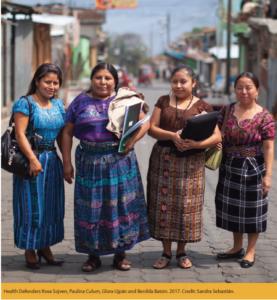
Benilda Batzin comes from San Pedro La Laguna, has a bachelor’s degree in Social Work and has experience working on various community development and environmental protection issues. She serves as a liaison between CEGSS staff and the defenders, provides accompaniment and capacity building to defenders, coordinating strategy to achieve health rights for indigenous populations in the department of Sololá and throughout Guatemala. When this interview was conducted, Benilda was working as an advisor. In October 2019, the CEGSS staff elected Benilda to succeed CEGSS’ founder, Walter Flores, as executive director of the organization, effective January 1, 2020. She also continues to advise the health defenders in Sololá. benilda@cegss.org.gt Paulina Culum is a renowned indigenous community leader from San Pablo la Laguna, Guatemala. She began participating in different arenas, including in a literacy campaign, when she was 13 years old. In 1998 Paulina was a founding member of the organization Women Weaving a Good Life, which works on women’s rights, access to land, defense of territory, and food sovereignty. She has participated in the Peasant and Indigenous Women’s Association (RECMURIC) and in 2014 she began working with the Network of Community Defenders of the Right to Health. She has participated in forums in Colombia, Venezuela, El Salvador, USA and Mexico. paulinaculum65@yahoo.es Julia Fischer-Mackey is a researcher with the Accountability Research Center who received her PhD from American University’s School of International Service. She has conducted development program research and evaluation in several countries, including Guatemala. She is interested in questions of power, knowledge and evidence, and has experience with thematic areas including health, gender, and environmental justice. juliamackey@gmail.com

